This Thursday, I was in Cologne to attend the #CSAsummit2016. This event (as its name indicates, but CSA means something else in France, it is not necessarily clear) is organized every year by Certified Senders Alliance (if you don't know what it is, don't hesitate to read theinterview with Julia Janssen-Holldiek) around the topics of deliverability. What is very interesting, unlike other events, is that it is directly aimed at ISPs, routers and the anti-spam industry. The audience, as well as the content of the conferences, is more technical than usual, which allows to have some information less often expressed in public.
My regret (yes, I start there) is the total absence of French ISPs and Signal Spam. However, CSA and Signal Spam are absolutely not competitors and would gain a lot by collaborating. The certification model as proposed by CSA seems to me a great opportunity for the French market to gain more clarity and it would be a shame to reinvent the wheel.
Let's skip this little parenthesis (and I love parentheses), and move on to the teachings!
Highlights and lessons learned
The very first lesson is that Certified Senders Alliance has received more than a hundred applications for certification in the last 12 months... and rejected 90%! Hats off to them! This clearly demonstrates the association's commitment to its charter. Even stronger (but this is off the record even if it is publicly visible), certifications can be suspended in real time. If too many complaints come to the CSA, they can suspend in real time a certification if the situation exceeds certain thresholds. From my point of view, this is admirable!
Email consumption is changing its face
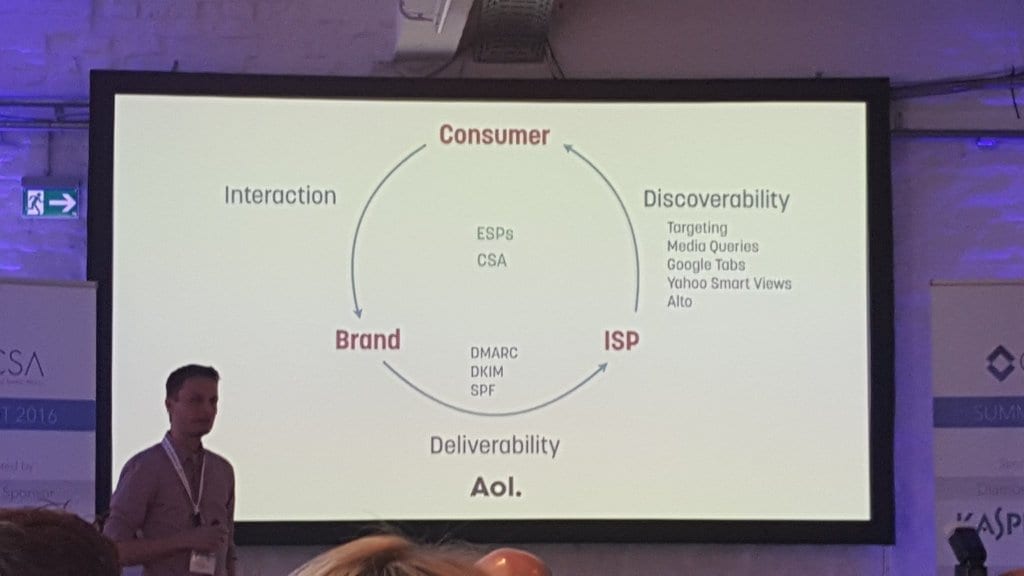
After this introduction by the CSA team members, we had a presentation by Marcel Becker, product manager of AOL mail. He told us about trends that Badsender readers know well, but that are worth remembering: email is evolving. It evolves, because 90% of emails are blocked from the first contact with ISPs and webmails (at least at AOL). Because the purpose of a webmail has changed, they now aim to help the consumer to find the email he needs. This change is expressed for example by tools like Alto (edited by AOL) or Google's Inbox, which allow to value some emails in a particular context and to extract the most relevant pieces of information.
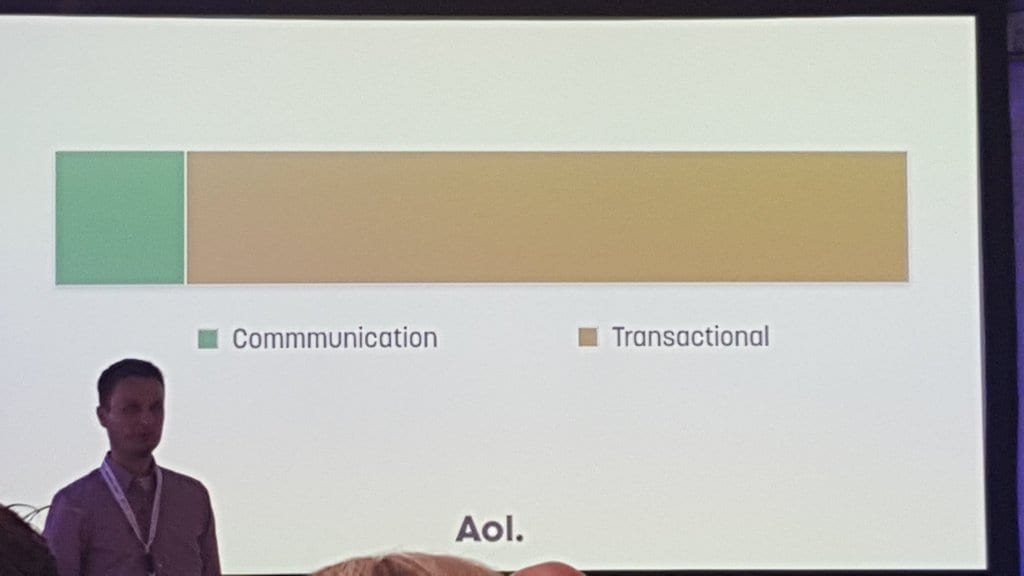
Marcel Becker also highlighted the fact that we are moving towards legitimate email traffic consisting of 90% transactional emails. Whether it is purchase confirmations, but also and especially notifications from various social networks, chat applications, .... This email traffic is also more and more diversified since it includes photos, events, documents, itineraries, videos, ... operators must therefore categorize this content in order to serve it to the recipient in the best way possible.
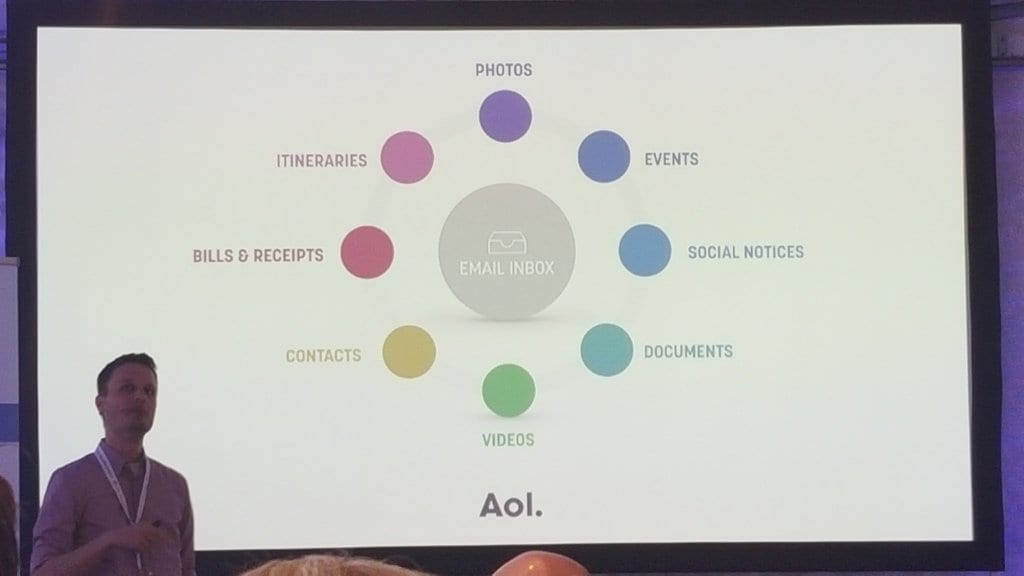
48% increase in complaints registered by Certified Senders Alliance
New interlude on the results of the CSA and eco (CSA is an initiative of eco which is the association representing the sector of the companies active on the internet in Germany) to explain us that there was an increase of 48% of the complaints received these last 12 months compared to the previous period (more than 140.000 complaints) and that a huge majority of these are worries about consent. Nothing new under the sun, but it's always good to have confirmation of what we say every day.
How do advertisers choose their router?
On stage next, Jordie Van Rijn, well known for his site "Email Vendors Selection", came to explain to us the criteria for choosing an email platform for an advertiser, but also what are the mechanics involved in this choice.
The classic process of selecting an email router:
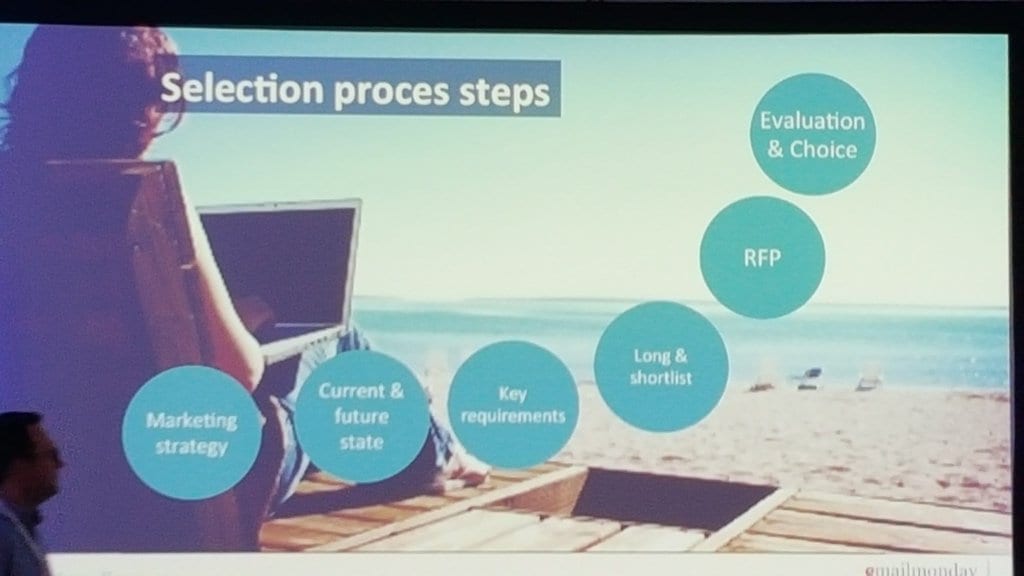
In the selection criteria, Jordie tells us that very often, deliverability doesn't count... unless there have already been problems. Moreover, we can't say that the choice of advertisers is always made on objective criteria. It is often a question of taking the solution with the most features at the best price... at the expense of customer service, deliverability and many other points.
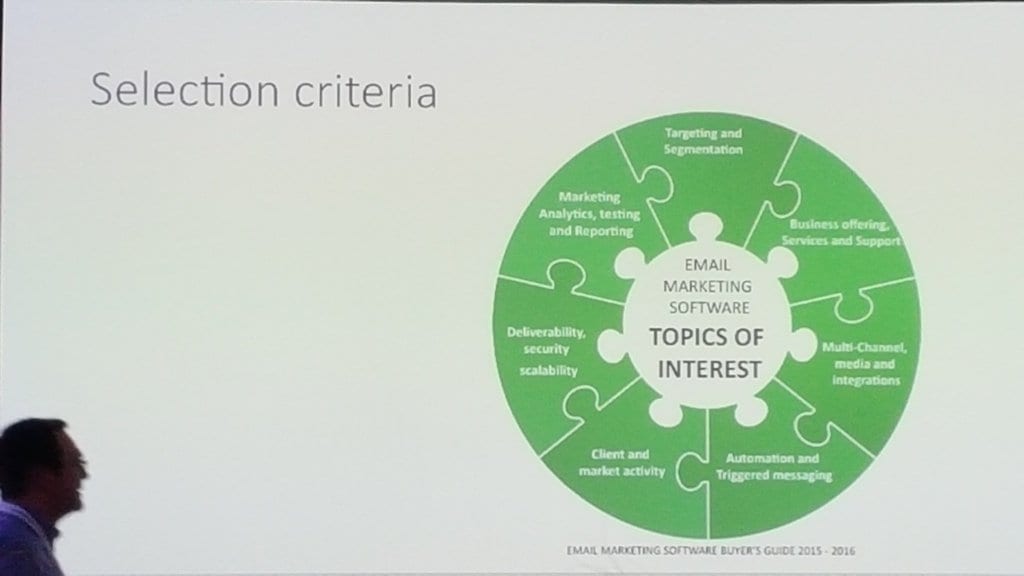
Note: On his Email Vendor Selection site, Jordie Van Rijn now references CSA certified solutions.
Routers don't want spammers using their platforms
After the lunch break, we had a very interesting round table discussion with two German router bosses and two deliverability managers from other routers. The subject of the roundtable was the onboarding and vetting of new customers of these platforms. The discussion mainly revolved around the very different objectives of the sales team and the deliverability team at the router. Very often, the deliverability teams find themselves rejecting a new customer after he has signed his contract, when he should perhaps have been detected as "at risk" at the very beginning of the process.
In any case, it is very difficult for someone with little training to detect a serious sender from a spammer going from router to router. The latter will always answer the vetting questions with the objective to get out the expected answers. This is why deliverability managers are forced to research the advertisers that come to them in order to validate their seriousness. During the discussion, the possibility was also raised to increase the collaboration between the different deliverability cells of the German routers in order to avoid spammers passing from router to router.
Spam filters are getting more powerful
We then attended a ping-pong match between a representative of Cisco and 1-und-1 on the chat/spam mouse/spam filter mode. We learn that Cisco blocks almost 20 billion threats per day and that most of the attacks are extremely well managed even if the techniques used are more and more complex. The two speakers also ask about list cleaning services. An advertiser that cleans its lists to remove spamtraps but is not able to block new spamtraps will be detected very quickly. It is therefore clearly on the quality of the acquisition sources that we must work.
The rest of the conference was more technical. What I remembered from the rest of the day is that France is clearly lagging behind in terms of DMARC and that it is essential to move on the subject. The number of phishing attacks continues to explode and affects structures that would never have thought of being victims. Something to think about (don't hesitate to contact us if you need to set up DMARC).
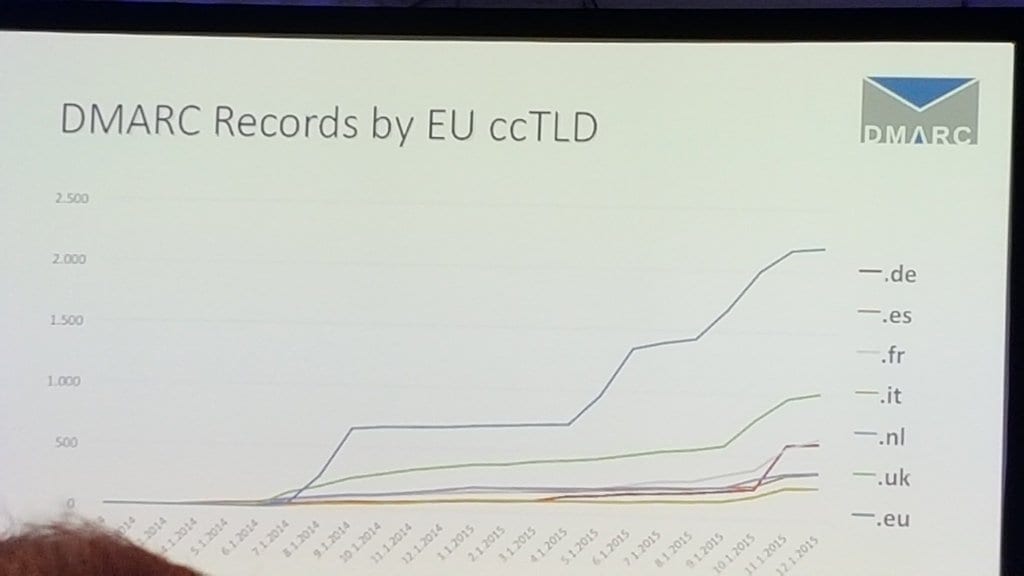
The CSA Summit is clearly a rewarding event. If some of what was said has already been heard elsewhere, the audience composed mainly of routers and ISPs is very interesting. There is a good chance that Badsender will be represented again next year!